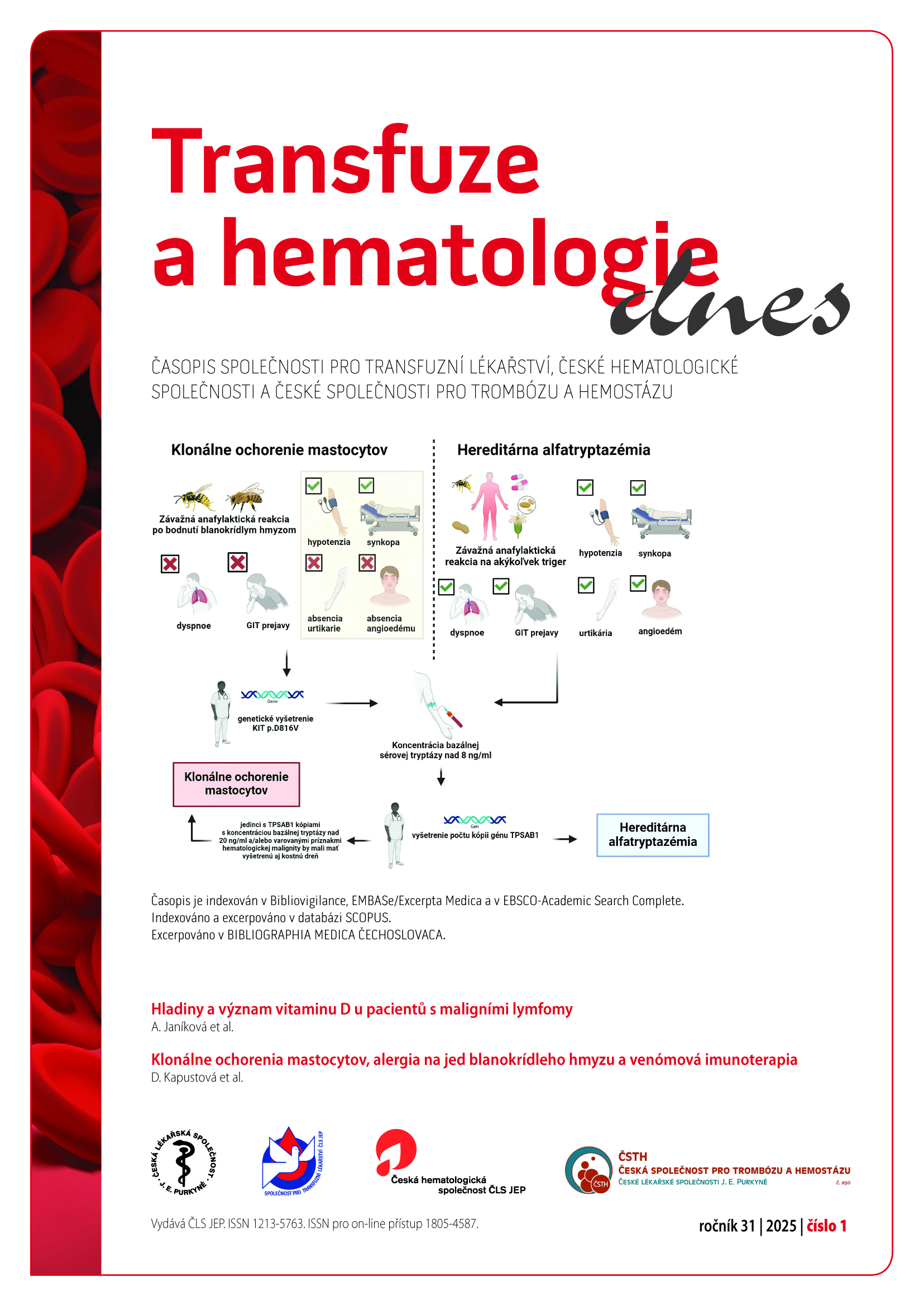HLADINY A VÝZNAM VITAMINU D U PACIENTŮ S MALIGNÍMI LYMFOMY
Keywords:
vitamín D, Lymfomy, imunitní systém, prognózaAbstract
Introduction: Vitamin D deficiency is associated in many diseases (including cancers and lymphomas) with worse prognosis. In our work, we wanted to analyze vitamin D levels in patients with non-Hodgkin lymphomas (NHL) of Czech Republic. Up to now, no similar data were published.
Methods: We conducted a retrospective analysis of newly diagnosed NHL patients with known vitamin D concentration, micronutrients (selenium and zinc), albumin and IgG in plasma at the time before start of therapy. Our analysis included comparison of vitamin D levels in various lymphomas (aggressive vs. indolent), the association with demographic, clinical, and selected laboratory parameters, and also prognostic value of hypovitaminosis D in terms of survival (PFS and OS).
Results: In time 05/2011 – 06/2020, 1196 patients were consecutively recruited (median age 65 years, 49,5% men), the median of vitamin D concentration was 43,5 nmol/l. Vitamin D deficiency (≤ 50nmol/l) was observed in 717/1196 (59,9%) cases, whereas patients with at least ≥75nmol/l (normal level) represented 14,1% cases only. Median follow-up was 3,9 years. We identified factors associated with vitamin D deficiency: female gender (p<0.000001), performance status ≥2 (p<0,0001), LDH > norm (p=0,0063), and hypoalbuminemia (p<0,000001). There were significantly lower vitamin D levels in aggressive (DLBCL, BL, PNBL, THL) vs. indolent lymphomas (FL, MZL; p=0.000002). In DLBCL, vitamin D deficiency correlated with shorter PFS and OS (median 5.15 yrs vs. not reached and 8.9 yrs vs. not reached; p<0.01), for FL there was no difference in PFS, but 5-year OS was 95% vs. 80% (p0.0007).
Conclusion: Vitamin D deficiency is very frequent problem of the most patients with NHL in the time of initial diagnosis before start of therapy. The deficiency is associated with other negative prognostic factors (hypoalbuminemia, elevated LDH, worse performance status). Vitamin D deficiency is also associated with shorter overall survival and progression free survival.


